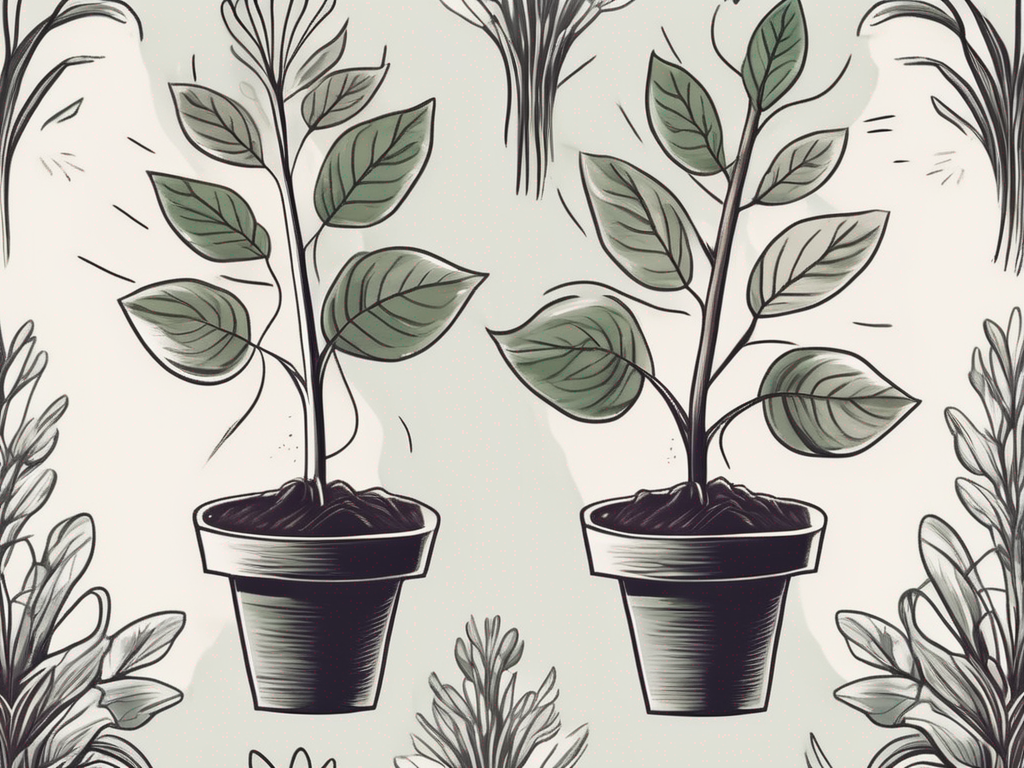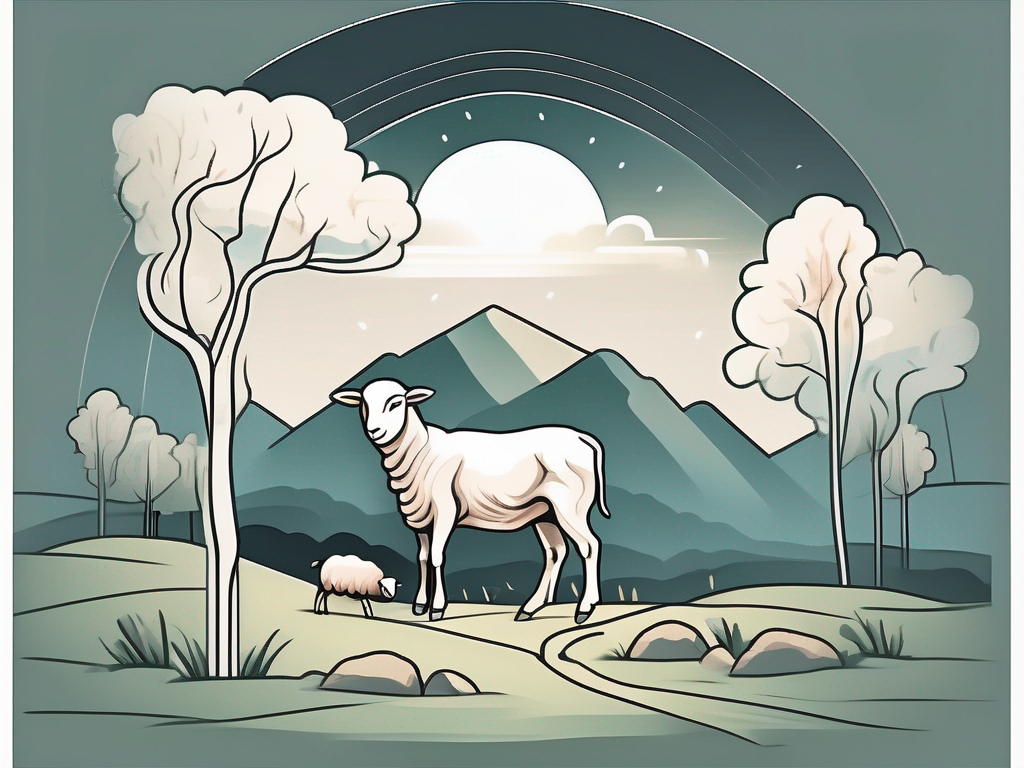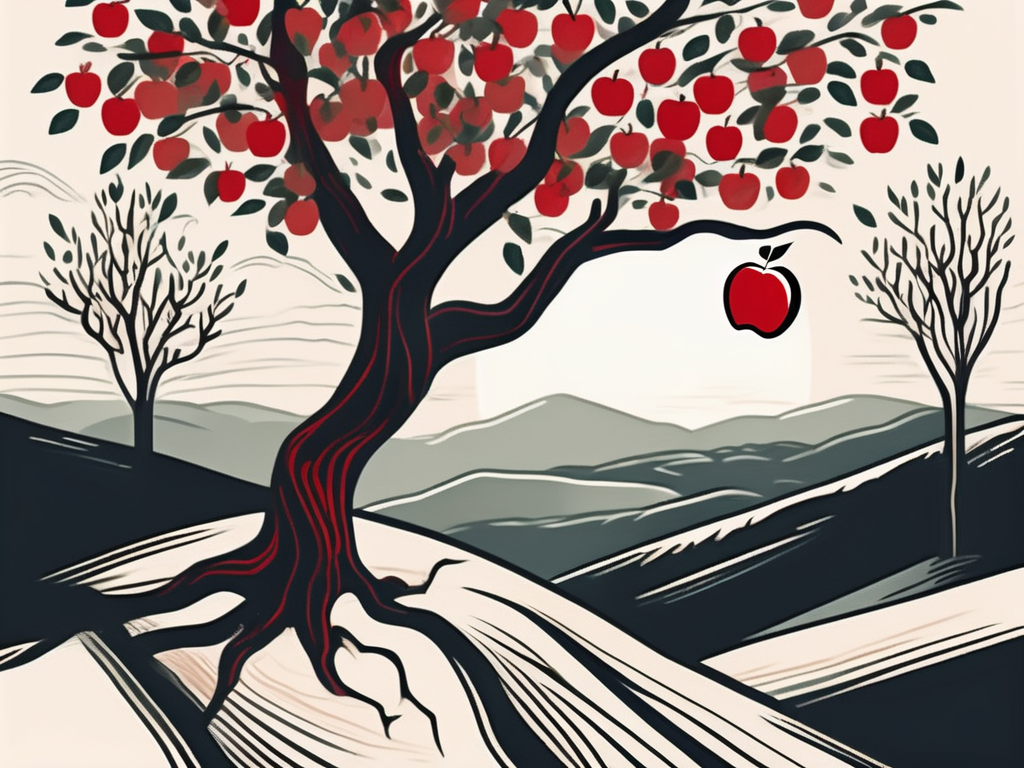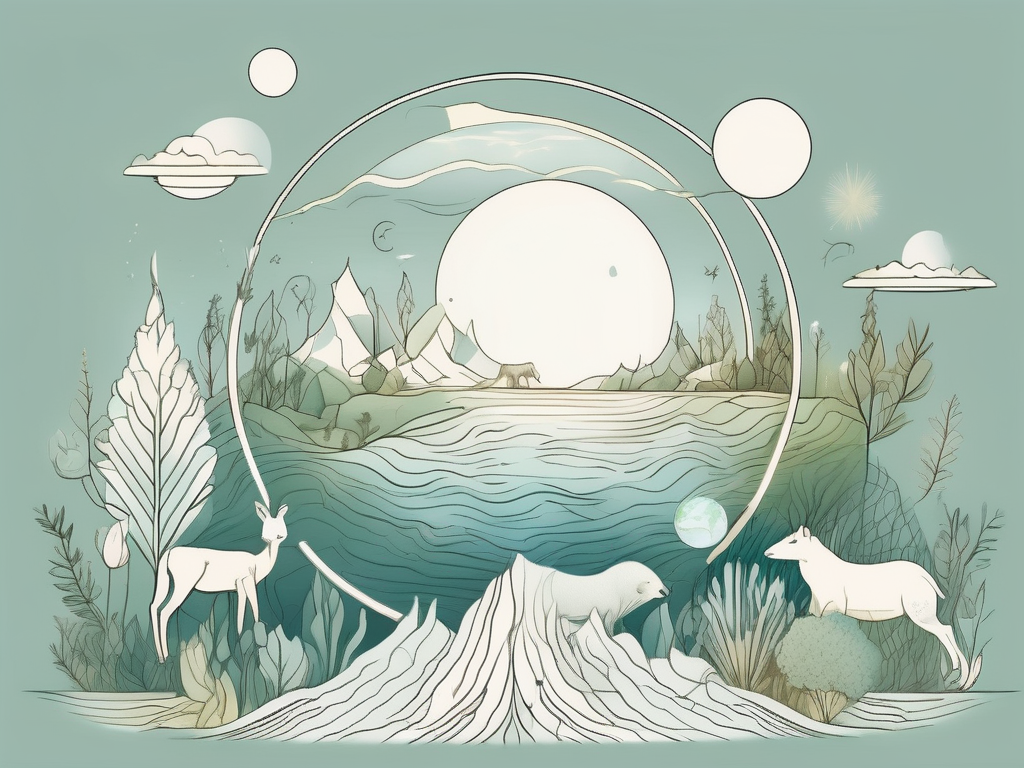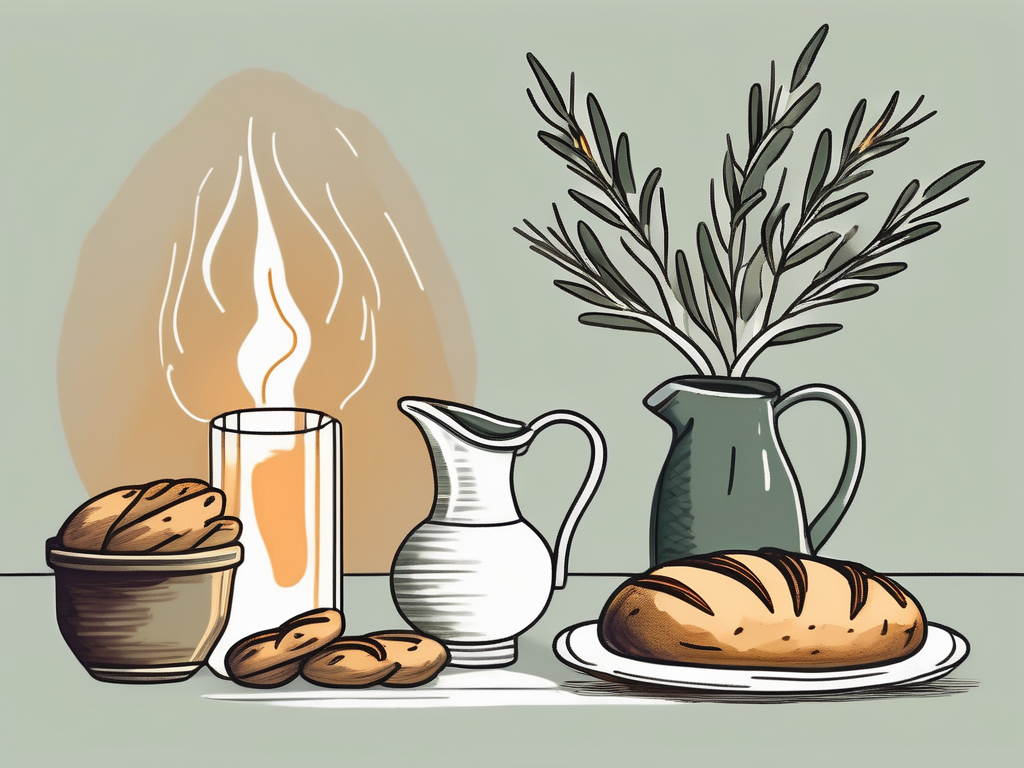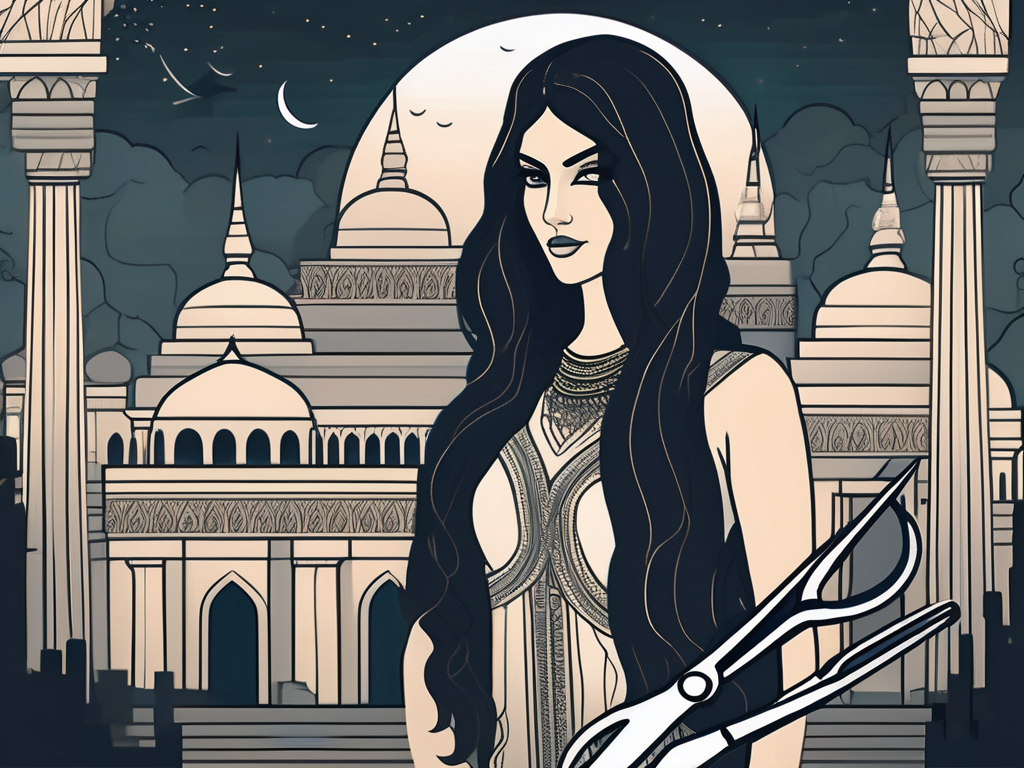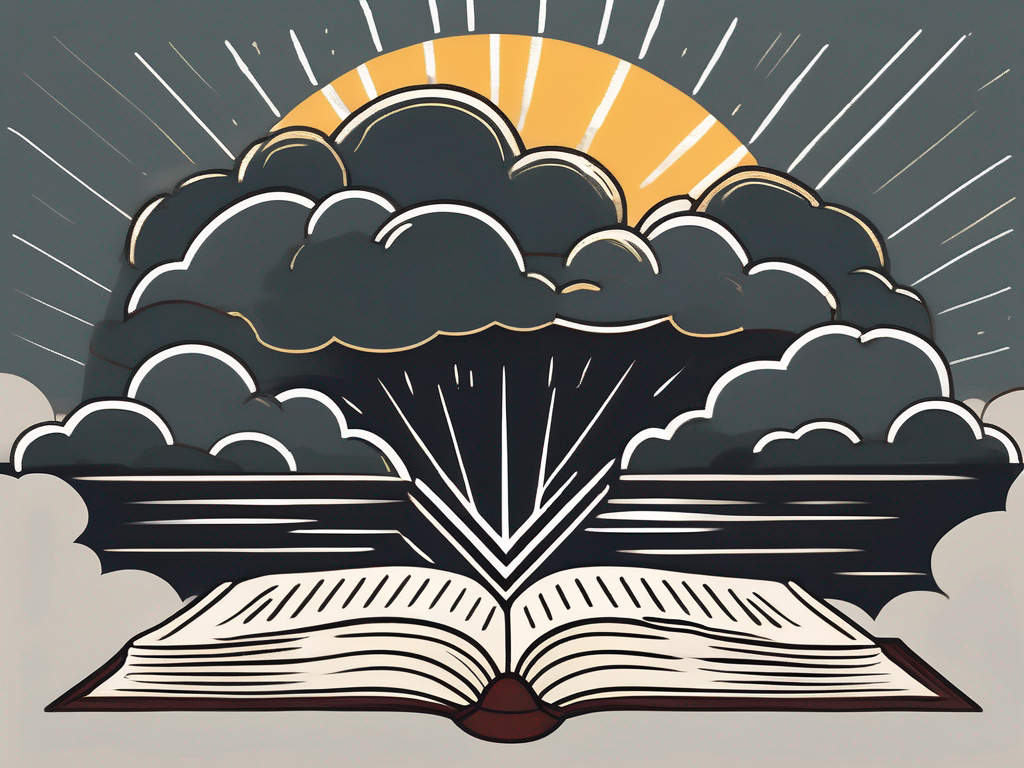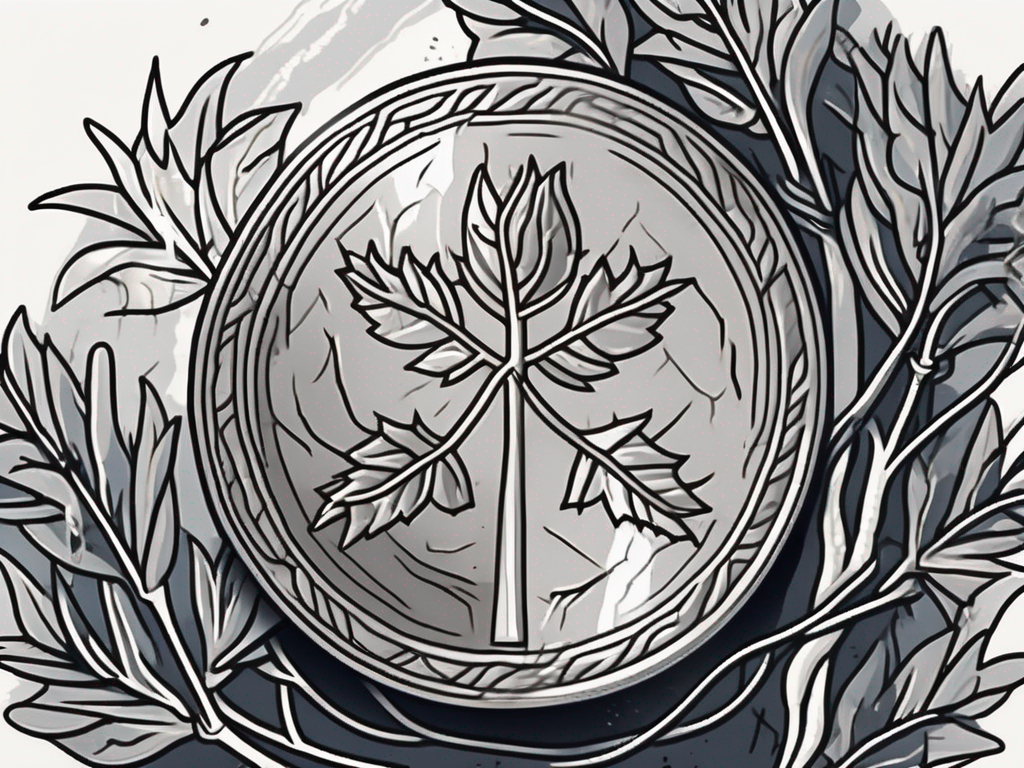Sibling rivalry is a dynamic that can be traced back to the very beginning of humanity. The story of Cain and Abel, found in the Book of Genesis, offers us a fascinating glimpse into the complexities of sibling relationships and the consequences of envy and anger. In this article, we will delve into this ancient narrative, examining the context, the characters, and the pivotal moments that shaped the outcome of this tragic tale.
Understanding the Context: The Book of Genesis
The Book of Genesis serves as the foundation of the Bible, recounting the creation of the world and the early history of humanity. It sets the stage for the events that unfold in the story of Cain and Abel. The Creation Story, as detailed in Genesis, highlights God’s power and sovereignty over all things. It establishes the unique relationship between God and humankind, laying the groundwork for the subsequent narratives.
Genesis, the first book of the Bible, is a rich tapestry of stories that provide insight into the origins of the world and the human race. It begins with the awe-inspiring account of God’s creation of the heavens and the earth. In just six days, God spoke into existence the light, the sky, the land, the sea, the plants, the animals, and finally, humanity. This remarkable act of creation showcases God’s immense power and creativity.
The narrative then zooms in on the creation of Adam, the first man. God formed Adam from the dust of the ground, shaping him with His own hands. But Adam was not just a lifeless statue; God breathed life into him, infusing him with a living soul. This act of divine breath symbolizes the intimate connection between God and humanity, setting the stage for the profound relationship that unfolds throughout the Bible.
God, desiring companionship for Adam, created Eve from one of Adam’s ribs. She was fashioned as his equal, his partner in life. Together, Adam and Eve were entrusted with the responsibility to care for the Garden of Eden, a paradise filled with beauty and abundance. They were given the freedom to enjoy all its fruits, with only one restriction: they were not to eat from the Tree of Knowledge of Good and Evil.
The Creation Story and Its Influence
The Creation Story in Genesis lays the foundation for understanding the context in which Cain and Abel’s story takes place. It reveals the inherent goodness of God’s creation and His intention for humanity to live in harmony with Him and with one another. The story emphasizes the unique position of human beings as bearers of God’s image, created to reflect His character and to steward His creation.
As the pinnacle of God’s creation, Adam and Eve were given the privilege of naming the animals and cultivating the earth. They experienced a perfect relationship with God, walking and talking with Him in the cool of the day. The Garden of Eden was a place of pure delight, where all their needs were met and where they experienced the fullness of God’s love and provision.
However, the story takes a tragic turn when Eve, enticed by the serpent, succumbs to curiosity and eats the forbidden fruit from the Tree of Knowledge of Good and Evil. She then persuades Adam to do the same, leading to their expulsion from paradise. This act of disobedience shattered the perfect harmony between God and humanity, introducing sin and its consequences into the world.
The Role of Adam and Eve
Adam and Eve, as the first human beings, held a unique position in God’s creation. They were created in God’s own image, endowed with the capacity for relationship, creativity, and moral decision-making. Placed in the Garden of Eden, they were given the responsibility to care for and cultivate the land, reflecting God’s character as stewards of His creation.
Their disobedience, however, had profound consequences. By eating the forbidden fruit, Adam and Eve introduced sin into the world, severing their intimate relationship with God and subjecting themselves and their descendants to the brokenness and pain of a fallen world. The expulsion from Eden was not merely a physical relocation but a spiritual separation from the perfect communion they once enjoyed with their Creator.
Adam and Eve’s story serves as a cautionary tale, highlighting the devastating impact of disobedience and the importance of obedience to God’s commands. Their actions set the stage for the subsequent narratives in Genesis, including the story of Cain and Abel, which explores the consequences of sin and the complexities of human relationships.
The Birth of Cain and Abel
After Adam and Eve left the Garden of Eden, they began their lives anew. Eve conceived and gave birth to their first son, Cain, meaning “acquired” or “possession.” Abel, their second son, arrived soon after, and his name translates to “breath” or “fleeting.” The birth of these two sons marked a significant turning point in the lives of Adam and Eve, as well as humanity as a whole.
As the days turned into weeks and the weeks into months, Adam and Eve watched their sons grow. Cain, as the firstborn, held a position of privilege and responsibility. He grew up as the eldest, witnessing the challenges and expectations placed upon him by his parents. Adam taught him the ways of tilling the land, while Eve shared her knowledge of gathering fruits and herbs. Despite his advantages, Cain struggled to find his place in the world. He yearned for something more, something that would set him apart from his brother and make him feel truly special.
Abel, on the other hand, seemed to possess a gentleness and innocence that set him apart. From a young age, he developed a deep connection with nature, spending hours tending to sheep and goats. He would sit under the shade of a tree, listening to the melodies of birds and feeling the soft touch of grass beneath his feet. His offering of the “firstlings of his flock” reflected his gratitude and reverence for the Creator. Abel understood the cycle of life and death, the delicate balance that existed in the natural world. His heart overflowed with love and appreciation for the beauty that surrounded him.
However, Abel’s virtues would become a source of resentment for Cain. As the brothers grew older, a fierce rivalry began to brew between them. Cain’s envy and frustration grew with each passing day, as he watched Abel receive praise and admiration for his gentle nature and offerings. The darkness within Cain’s heart started to consume him, clouding his judgment and distorting his perception of reality.
One fateful day, as the sun cast long shadows across the land, Cain’s jealousy reached its boiling point. The brothers stood on a hill, overlooking their respective offerings to the Creator. Cain’s anger surged within him like a raging storm, and he confronted Abel with a venomous tongue. The words that spilled from his lips were filled with bitterness and malice, poisoning the air around them. The brothers’ once unbreakable bond shattered, replaced by a chasm of hatred and resentment.
The story of Cain and Abel serves as a cautionary tale, a reminder of the destructive power of envy and the importance of nurturing love and compassion. It is a tale that echoes through the ages, reminding us of the choices we make and the consequences they bear. The birth of these two sons marked not only the beginning of a new generation but also the beginning of a struggle that would shape the course of human history.
The Offering to God: A Critical Turning Point
As time passed, both Cain and Abel grew into adulthood, each pursuing their respective occupations. It was during this period that a pivotal moment unfolded, forever altering the course of their lives.
Amidst the backdrop of a vibrant and bustling world, Cain, a tiller of the ground, presented an offering of the fruits of his labor to God. The exact nature of this offering is not explicitly mentioned, but it is clear that it fell short of God’s expectations. Perhaps it lacked sincerity or wholeheartedness. Whatever the reason, God did not regard Cain’s offering with favor, intensifying the growing unrest within him.
Meanwhile, Abel, a shepherd, immersed himself in the vast and sprawling landscapes, tending to his flock with unwavering dedication. In a display of profound devotion and gratitude, Abel brought forth the “firstlings of his flock” as an offering to God. The warmth of his heart radiated through this act, and it found favor in the eyes of God, once again highlighting the stark contrast between the brothers’ intentions.
The divergence in divine acceptance ignited a spark of jealousy and resentment within Cain. Like a smoldering fire, it began to consume him, fueling a growing darkness within his soul. The weight of inadequacy pressed heavily upon him, as he questioned his worthiness and sought to understand why his offering had been rejected.
As days turned into nights and nights into days, Cain’s heart grew heavier with each passing moment. The once harmonious relationship between the brothers now stood on the precipice of destruction. The envy that gnawed at Cain’s core threatened to unravel the very fabric of their bond, setting in motion a chain of events that would forever alter the course of their lives.
The Wrath of Cain: The First Murder
Unable to bear the weight of his envy and God’s apparent favoritism, Cain’s emotions boiled over, culminating in an act of unthinkable violence.
As the firstborn son of Adam and Eve, Cain grew up in the shadow of his younger brother, Abel. From a young age, Cain had always felt the burden of responsibility on his shoulders. He was expected to be the provider, the one who would carry on the family legacy. However, it seemed that no matter how hard he tried, Cain could never quite measure up to Abel’s accomplishments.
Abel, on the other hand, seemed to effortlessly excel in everything he did. His offerings to God were always met with favor, while Cain’s were met with indifference. It was as if God had a special place in His heart for Abel, leaving Cain feeling rejected and overlooked.
God’s Favoritism: The Trigger Point
Feeling snubbed by God’s rejection of his offering, Cain entered a state of profound anger and frustration. His heart burned with a lethal mixture of jealousy and wounded pride. In this volatile state, God confronted him, warning him about the impending dangers lurking within his heart. However, Cain allowed his emotions to prevail, and tragedy ensued.
Cain’s envy festered within him, poisoning his thoughts and clouding his judgment. He couldn’t understand why God would show such favoritism towards Abel. Wasn’t he, too, deserving of God’s love and approval? The more he dwelled on these thoughts, the more his anger grew, until it became an all-consuming fire that threatened to consume him.
God, in His infinite wisdom, recognized the danger that lurked within Cain’s heart. He approached him, not to chastise or belittle him, but to offer guidance and a chance for redemption. God warned Cain that if he did not master his anger and envy, sin would overtake him, leading to dire consequences.
The Act of Murder: Cain’s Downfall
Consumed by his rage, Cain lured Abel out into the field, far from the watchful eyes of others. There, in a fit of uncontrollable fury, he struck his unsuspecting brother, snuffing out his life. Abel’s blood cried out from the ground, marking this as the first recorded act of murder in human history. The consequence of Cain’s actions would reverberate through generations to come, leaving an indelible mark on his own existence.
As the life drained from Abel’s body, Cain was left to grapple with the enormity of what he had done. The weight of his actions crashed down upon him, shattering any illusions he may have had about the righteousness of his anger. In that moment, Cain became a fugitive, forever marked by the stain of his brother’s blood.
The story of Cain and Abel serves as a cautionary tale, a reminder of the destructive power of envy and unchecked emotions. It is a stark reminder that even the strongest bonds of family can be shattered by the darkness that resides within the human heart. The consequences of Cain’s actions would echo throughout history, a haunting reminder of the fragility of life and the devastating consequences of succumbing to one’s inner demons.
The Aftermath: God’s Punishment and Cain’s Exile
As with any act of violence, justice demanded a response. God, in His divine wisdom, administered both punishment and mercy.
The Mark of Cain: A Symbol of Divine Protection
God cursed Cain, but in an act of mercy, He also placed a mark upon him, ensuring his protection from those who might seek revenge. This mark served as a constant reminder of Cain’s heinous act, a visible emblem of his guilt and the consequences of his jealousy. It signified his separation from society and the heavy burden he would carry for the rest of his days.
The Land of Nod: Cain’s Life in Exile
Banished from his family and the familiar surroundings of his youth, Cain was condemned to wander the land of Nod, a desolate place void of connection and belonging. Though God protected him from vengeance, Cain suffered the torment of loneliness and isolation, forever impelled to dwell on the consequences of his actions.
Archetypal in nature, the story of Cain and Abel serves as a cautionary tale that explores the destructive power of envy, unchecked anger, and the consequences of our choices. It reveals the tragic outcomes that can result from sibling rivalry and uncontrolled emotions. As we reflect upon this ancient narrative, may we be vigilant in nurturing healthy relationships and fostering kindness and understanding between siblings, ensuring that we do not succumb to the destructive tendencies exhibited by Cain.
